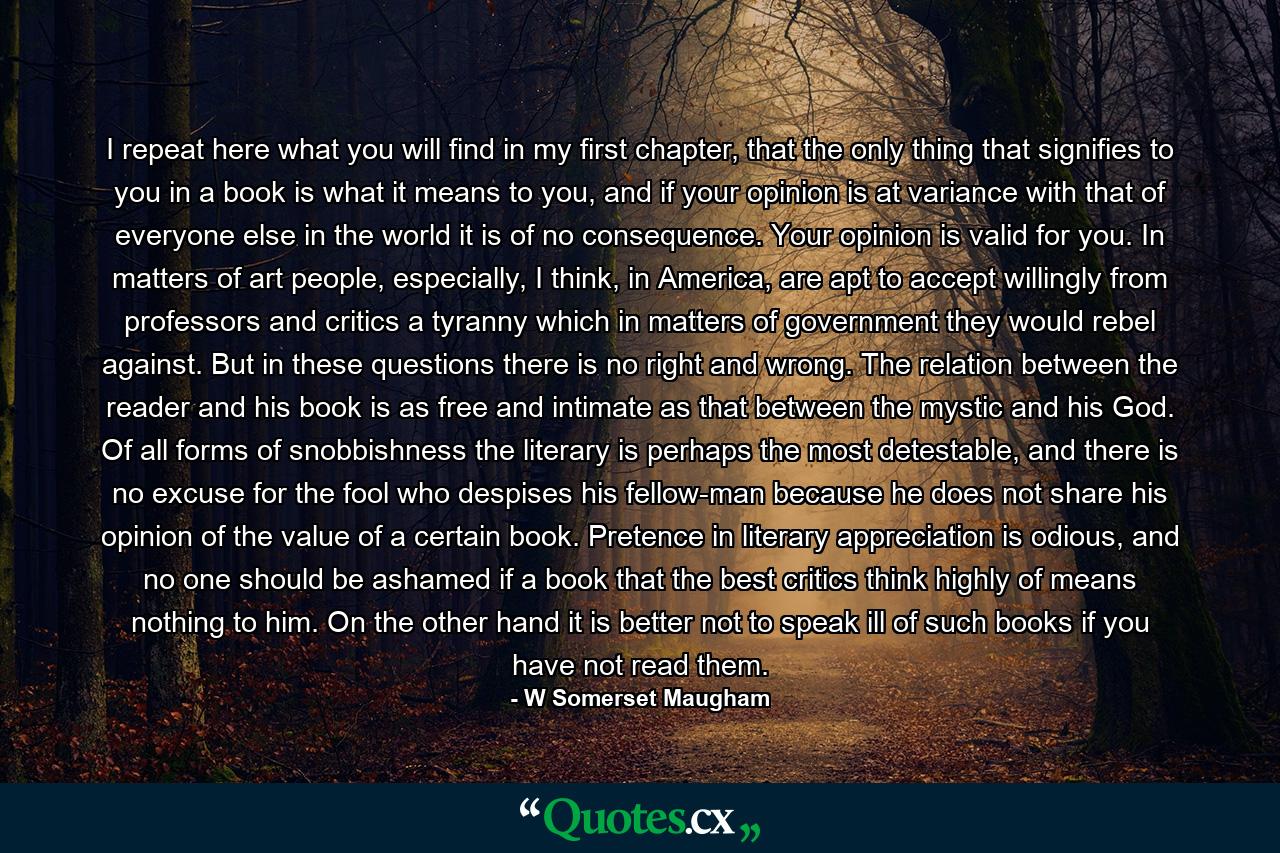I repeat here what you will find in my first chapter, that the only thing that signifies to you in a book is what it means to you, and if your opinion is at variance with that of everyone else in the world it is of no consequence. Your opinion is valid for you. In matters of art people, especially, I think, in America, are apt to accept willingly from professors and critics a tyranny which in matters of government they would rebel against. But in these questions there is no right and wrong. The relation between the reader and his book is as free and intimate as that between the mystic and his God. Of all forms of snobbishness the literary is perhaps the most detestable, and there is no excuse for the fool who despises his fellow-man because he does not share his opinion of the value of a certain book. Pretence in literary appreciation is odious, and no one should be ashamed if a book that the best critics think highly of means nothing to him. On the other hand it is better not to speak ill of such books if you have not read them.
